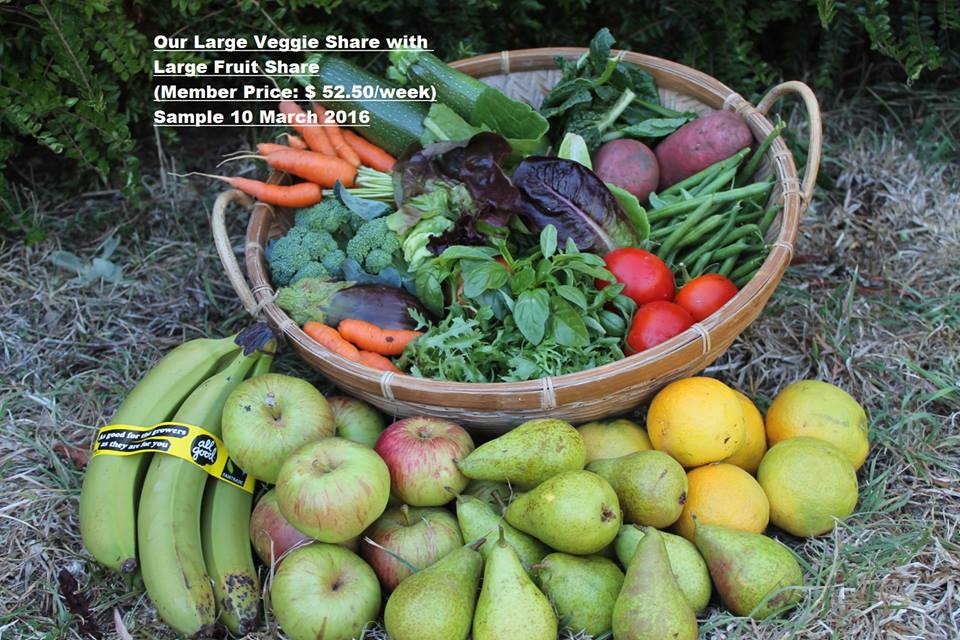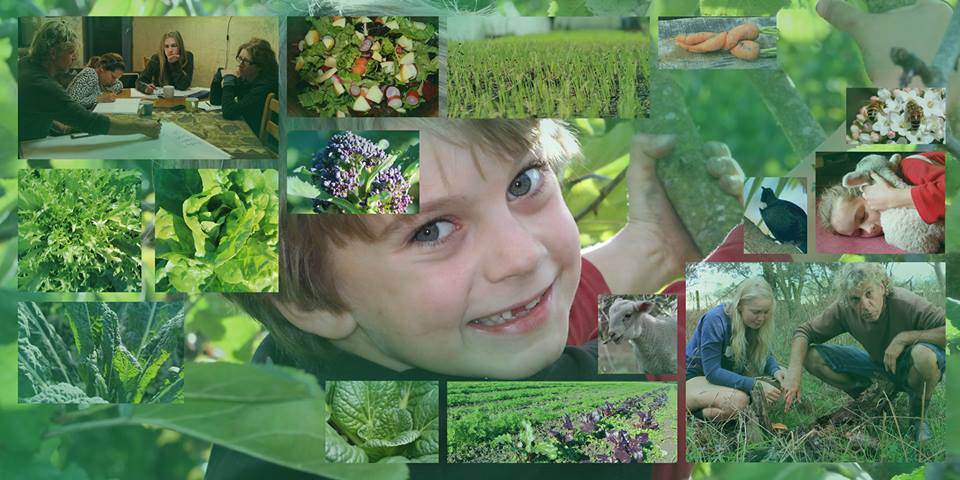
- Sustainable Planet -
- 4mins -
- 644 views
This Eco Farm in New Zealand is a thriving model of Community Supported Agriculture at work
Wairarapa Eco Farm was the country’s first example of a popular new type of farming that has over 20,000 practitioners in North America.
Quality food with ecological integrity
The philosophy at Wairarapa Eco Farm CSA, on the south-east tip of the North Island of New Zealand, is that by properly taking care of the soil, they take care of the plants and animals that live in and on it and thus they produce food with integrity. This, they say, is food quality.
Frank and Josje made the choice to grow organically when they were students at university
Wairarapa Eco Farms CSA was born out of the founders’ desire to produce quality food with ecological integrity. The original farm is situated on the Tauherenikau Plains in South Wairarapa, on the south-east tip of the North Island of New Zealand. The windswept and occasionally very dry plain, with its stony soil, lends itself to quality olive production.
Ecological farming pioneers, Frank van Steensel and Josje Neerincx, bought an empty patch of land in 1996 and with their strong ecological principles, they planted windbreaks and olive trees, built up the soil, and designed and built their alternative green home. The farm has grown from bare paddocks into a secluded oasis amidst a grass desert and now possesses the vitality they had dreamt of.
They made the choice to grow organically, or as they like to call it, “ecologically”, when they were students at their Dutch university and dreaming of doing their part to make the world a better place.
Frank and Josje build health and vitality into what they grow by using seaweed blends, compost, biodynamics, and, of course, a love for what they do. Ultimately, they harvest quality produce at its peak and deliver it garden fresh, because flavour and freshness make healthy eating choices a pleasure.
Source: wefs.co.nz

What is a Community Supported Agriculture program (CSA)?
CSA stands for Community Supported Agriculture. The CSA model for farming is also referred to as subscription farming or farm shares. In this model members subscribe a season’s worth of vegetables, sharing both the risks and bounty of agriculture.
You place your ‘food dollar’ directly in the hands of a local family farm, and in exchange receive a share of fresh, organically grown vegetables each week. Wairarapa Eco Farm delivers to pick-up points throughout Wellington, Upper Hutt, Lower Hutt, in Palmerston North, and throughout the Wairarapa.
They say that by joining their farm as a CSA member, you gain greater knowledge of where your food comes from and how it is produced, through weekly newsletters, farm visits, and recipes.
Community Supported Agriculture unites farmers and consumers to create direct and mutually beneficial relationships around the production of environmentally sustainable and healthy local food.
By joining a CSA you support small farms and a production system that provides nutritious and fresh food for your family.
Source: wefs.co.nz

Why should I join a CSA? Five points worth considering
Community Supported Agriculture (CSA) groups are a fantastic way to support local farmers and gardeners while ensuring you get access to the freshest seasonal fruits, vegetables and in some cases meat, eggs and dairy. Not so long ago, it could be difficult to find one in your community, but today joining a CSA is more accessible than ever. Here are five worthwhile points to consider:
- It Supports Local Farmers: Unlike buying from a grocery store, CSAs are a great way to give money directly to the farmers that grow your fruits and vegetables. It’s not as direct as visiting a farmer’s market, but if you don’t live in a place where there’s a farmer’s market nearby, CSAs often deliver your "share," or your portion of the harvest to your home, or let you pick up your share from a central location.
- You get the Freshest Possible Seasonal Eats: Since all of the fruit, vegetables, and dairy you get from a CSA are locally-grown, everything you get as part of your share will likely be grown within a stone’s throw of your home. That means it’s picked when ripe, and not frozen and trucked across country before getting to you. Also, as the weather changes, crops will change too – you’ll get berries and tomatoes in the spring and summer, and squash and apples in the fall – when they’re perfectly ripe.
- Try New, Healthier Foods: You don’t have to join an organic CSA, but they’re out there if you want food that’s free of pesticides or grown in a certified organic environment. Plus, as a thank you, most farmers in a CSA will throw in new and different crops at times to see how well people like them and how well they grow. Your regular share will usually contain a delicious surprise.
- It Gets You Outside: It’s not required, but many CSAs will offer discounted memberships if you come and work the field. It’s not for everyone, that’s for sure, especially if you’re joining so you don’t have to garden. If you do like getting out in the sun and getting some activity for a day a month or so, some CSAs give you the chance to get up close and personal with the fruit, veggies, and sometimes even the meat and dairy you eat.
- (Potentially) Cheaper than Gourmet/Conventional Markets: Most people wouldn’t consider a CSA the most affordable option when it comes right down to dollars. The benefit of fresh, delicious food is enough to make many people spend more than they would at their local supermarket. However, because a CSA requires you lay out more money up front to get regular deliveries, it forces you to budget, and depending on how much you spend on groceries regularly, it could wind up being cheaper in the long run.
Source: LifeHacker

